In Western public opinion, Russia is often thematized as a black box, rather a black pyramid on top of which sits Russian President Vladimir Putin, commanding everybody else into a conflict of many miscalculations and a lot of casualties. Although from time to time a charismatic leader from the Russian opposition emerges – like the late Alexei Navalny – but it is mentioned less often that the Russian opposition indeed has structured organizations.
The Long Brief chose to talk to Roland Freudenstein, director of the Free Russia Foundation’s Brussels office. Before joining the foundation he made a career in public administration, global democracy building, and the think tank world. In 2024, he founded the Brussels Freedom Hub, an advocacy platform for a resilient West, strong Transatlantic ties and the global solidarity of democrats.
We spoke to him about his work at the foundation, what a just peace would look like after the war in Ukraine, whether the Russian nation can be compared to the German people after World War II and he also elaborated on states that are viewed as Russia’s partners.
Tell me about the Free Russia Foundation.
It is the biggest international organization of pro-democracy Russians. Like in

Roland Freudenstein
every exile community, there is a pluralism, a multitude of organizations and individuals. But ours is arguably the biggest one with headquarters in Washington, and offices in Vilnius, Tallinn, Berlin, Brussels, Warsaw, Berlin, Paris, and Tbilisi, but from here we are moving out, now relocating to Madrid.
Can we say that yours is the biggest and most influential organization among the Russian exile community?
Yes, that’s correct.
Who are the founders?
They are Natalia Arno, our President, and Grigory Frolov, who is actually the head of the Berlin office. So Grigory Frolov and Natasha Arno founded this organization ten years ago. And if you want another famous name: one of the vice presidents at the moment is, since his liberation, Vladimir Kara-Murza. There’s another Vice President Vladimir Milov, who is very vocal on economics, sanctions and is also a former democratic politician in Russia itself.
What are the main activities of the foundation?
Well, in general, there are, let’s say, three strategic things that the Free Russia Foundation is doing. Most of all, of course, this is an effort to empower and assist pro-democracy Russians in exile.
I mean, 10 years ago, Free Russia foundation was active in Russia itself. We had a network of structures. But now we’re an extremist organization.
Also, foreign agents?
Yes, it gets better and better. That’s why we’re operating abroad and we’re tending to the community of Russian democrats abroad. We offer legal counsel, language courses, speaker trainings, and of course, lots and lots of debates, briefings and presentations about the future of Russia. So that’s one thing. The next thing is that we have more of a think tank component, where we develop ideas for the transformation of Russia.
Can you elaborate on the think tank component?
Actually, it has a kind of umbrella name, the Transition Project. That’s the English name. You can look it up on our website, where, in a lot of detail, we envision a free Russia.
Finally, we are extremely active with our Ukrainian branch in locating and assisting Ukrainian civilians, including children who have been deported to Russia. In this regard, we also facilitate prisoner-of-war exchanges.
As you may know, many Ukrainian prisoners of war in Russia are kept at so-called Ghost Gulags. No one knows where they are, but the moment they get indicted in court for war crimes or terrorism etc, which happens very often, you can locate them. We are in full cooperation with the Ukrainian authorities in these activities. To do that, you need networks in Russia itself. This is very dangerous work, but we do it.
That leads to my next question: how can you reach the people or the opposition who are endangered in Russia? How can you reach them? Online, or do you have direct contacts, as well? Is the Russian opposition also divided in many ways, or are they now working together?
Absolutely, we can reach the Russian people. Some of my colleagues talk to people even in the Kremlin bubble. About the divide, show me an opposition in exile, which is completely united. Maybe the Belarusians, but this is a very particular case. But even among the Belarusian democrats, I see generational tensions and differences. So, in other words, I wouldn’t hold that against Russian democrats. It is a natural effect. The most important thing is that they’re unified on three or four substantial truths. The first is that Vladimir Putin has to go. Second, Russia has to become a democracy with checks and balances and the rule of law. Third, Russia has to say farewell to its imperial ambitions, and these latter two things are two sides of the same coin. Finally, Russia has to become a true federation.
It looks to be a very long way for the Russian opposition. it seems to me that to achieve these goals – the regime change and ousting Putin from power – inevitably leads to not letting Russia win over Ukraine. In other words, how can Ukraine win the war?
Well, the West has to change its approach. There are still too many leaders of Western governments who say we support Ukraine as long as it takes, but not with everything it takes. And here I’m specifically referring to far-reaching missiles and the permission to use them.
Even against Moscow?
Well, it’s not a question of exactly where. The question is, can Ukraine prevent these murderous and criminal attacks on its own energy infrastructure and civilian population? This is only possible with deep strikes into the air bases and missile bases from which these weapons come and this is fully covered by international law. There are two big fears among some Western governments about the war. One is that it escalates. The other one is that it leads to collapse and chaos in a nuclear-armed country, which is Russia. Both are unjustified.
What do you think about the ongoing Ukrainian offensive in Kursk? What will be its outcome?
At the beginning of the Kursk counteroffensive, many people guessed what would be the goal here. Some people said this is for a territorial bargaining chip, for a ceasefire negotiation. Other people said this is to distract attention and pull away Russian troops from Donbas. Although they were not wrong, I think there is a third factor that is emerging right now, which is becoming extremely important, whether intended or not.
That factor is that Putin’s alleged red lines have been exposed as null and void.
This would give me hope for the caveats of Western governments (against deep strikes into Russia with Western missiles), but unfortunately, many experts are telling me nothing is going to change about the caveats before the US election.
We have just arrived at the question in which everyone is interested: what will happen to Ukraine if Donald Trump becomes President again?
Many Americans say that even Trump himself doesn’t know how he will deal with the war. I think it will depend on who becomes his main national security advisor, his Secretary of State, and the direct foreign policy advisers in the White House. The other important element is whether he believes he can bring about peace faster through, for example, giving more weapons to Ukraine or removing the caveats. There was a newspaper article by Mike Pompeo who believes that he could become Secretary of State again. Let’s see. In his article, Pompeo said, Trump will want to have a good negotiating position for Ukraine. And for that reason, he will improve Ukraine’s ability to conduct military strikes for a while, at least. So it’s the opposite of what we fear, that Trump will cut the support. The other possibility, which would be a disaster, is that Trump withdraws support completely from Ukraine in order to force them into negotiations.
What do you think will be a just peace? Will Russia have to return all occupied territories to Ukraine, including Crimea, and will Moscow have to guarantee Ukraine’s sovereignty?
Those are the aspects of a minimum deal, I think. What is more important is Ukraine’s free choice of political system and alliances, and of course that Russia can’t keep even a couple of square kilometers of Ukraine’s territory.
It doesn’t look like any peace will be signed by Putin.
Well, then someone will hold his hand, or someone will sign it for him.
Why do you think might this happen? Russia’s economy is in good shape despite the sanctions. Based on the figures by the independent Levada institution, unemployment is lower than ever before and consumer confidence has been well above the average since Putin came to power.
It is undeniable that the Russian economy is overheated. I mean, even Elvira Nabiullina, the head of the Russian Central Bank, publicly said this a few weeks ago. Russia’s economy cannot continue like this. Russia is also living on reserves militarily, in terms of equipment and tanks. And we’re talking about a year, maybe. The depots become less and less and less. There is no replacement. The Russians don’t have the machine tools, and they don’t have the semiconductors either to uphold their current level of production of sophisticated military equipment. There are several effects of the sanctions that work, at least so far, and the Chinese are not willing to step in completely. Financially the Kremlin is also eating up its reserves. You mentioned they have a very low unemployment. They actually have a shortage of labor. Over-employment is also bad for the economy.

Payment terminals at a Vkusno i Tochka restaurant, direct successor to McDonald’s after the American company left the Russian market in 2022 (Photo: Moscow Metro / Wikimedia Commons)
Technically, you may be right, this kind of economy is not sustainable. But at the moment, the average Russian living in Moscow, for example, does not yet feel the economic burden of the war, nor is he affected by the sanctions.
No, I honestly think that the common people do feel it, but there is a segment of between 20 and 30 percent who work in certain parts of the state sector and military industries. Who are actually still living a good life. Their salaries come from reserves that are not infinite.
I mean, there is broad debate in the West about the real state of the Russian economy. But I personally think that there is a polycrisis that Russia is going to go through.
I’m rather a pessimist, meaning I’m an optimist, if you know what I mean.
Definitely. Let us now turn to the other topic, namely collective guilt. In the last GLOBSEC Forum you mentioned that we need to make it clear that we are not at war with the Russian people or Russia as a whole. It is important for us as the West to free ourselves from the notion of collective guilt. In my opinion, events like not performing a Russian composer’s music cannot or shouldn’t happen.
In 1946, there were very few orchestras in Europe that would want to perform Beethoven’s music. This is something that a nation like post-war Germany went through and a nation like post-war Russia will have to go through.
This is history.
And yet, several decades later, Germany was accepted as a partner by its neighbours. I mean, we are lightyears away from that in Russia’s case. But what I’m saying is that there is a ‘valley of tears’ that a nation with this kind of record will have to go through.
You are saying it’s an unavoidable result, what we are witnessing?
There is a lively debate in the West about whether the Russian nation should be held responsible collectively. Well, I can only say it’s complicated.
Two statements are not true: not every Russian is guilty of this war, and at the same time this is not just Putin’s war.
The reality is somewhere in between and it’s very, very difficult to make a fair statement that wraps in one sentence what is happening in this complex field of responsibility, guilt, and the war in Ukraine.
If it is not Putin’s war, does that mean that the Russians accept the goals of the conflict?
Look, there is a segment of the Russian population that actively supports the war. Yes, they believe that NATO has started the hostilities. The West has drawn the Ukrainians into this fratricidal conflict among Slavs. This is rampant propaganda, but they genuinely believe it, right? Is it 10 percent or 20 percent, maybe 30 percent? Somewhere around it, I don’t know. Then you have millions of Russians who know that this is a disaster, who are totally opposed to it, and who dream about the day when this nightmare is over. And the nightmare is not just the war, but also the totalitarianism that has emerged.
But they are keeping quiet.
Yeah, well, many of them are afraid. But there is a generation gap; youngsters are less likely to follow the regime. Look at the tens of thousands of Russians who risked a lot in the funeral and commemorations for Navalny after his murder. Or who were in the queues before the Russian pseudo-election to sign up for Boris Nadezhdin, the only anti-war candidate, before he was kicked off the list because the queues were getting longer and longer and it looked bad on Russian television.
And then, finally, came the “Noon against Putin”. This was Navalny’s last wish, in fact, to protest against the fake election. Everybody turned up at 12 noon on Sunday, the 17th of March, the last day of the election. And this timing in itself becomes a demonstration. Look at how many people followed this. And these were young people who risked a lot, for example their careers.
So, if there are tens of thousands of people risking that, it tells me that there are millions and millions of people who are afraid, but deeply, deeply unhappy about what is happening.
And then there are the opportunists, people that just want to have peace for themselves and their family as long as possible. They will not resist in the event of a regime change. This is the flip side of that opportunism: much of the Russian elite, down to the middle and lower levels of administration, is not going to die for Putinism.
Let’s talk about the post-war role of Ukraine. What would happen if Kyiv defeats Russia? Even with its destroyed infrastructure and economy, Ukraine could be a dominant military power. What role should Ukraine play in the region if this were to be the case?
The most important thing that Ukrainians are doing today and they have done in the last 15 years and will do in the future is remaining a free country. Remaining a democracy with the rule of law and with a relatively functioning economy. At least attempting to fight corruption and creating and strengthening institutions that fight corruption.
This in itself will be a positive example for many Russians. So, that is Ukraine’s main role, is to show that a country of the core Slav culture can become and remain a market democracy with the rule of law. Then why can’t Russia do the same?
As you’re an advocate for the case of Ukraine, let me ask a little bit of a provocative question for closing this interview. If you were in a position that you can advise Hungarian Prime Minister Viktor Orban about the Russo-Ukrainian war, what would be this proposal? How would you convince him to change his rhetoric, the tone in which he speaks about the conflict and the way he thinks it should be ended?
Look, I don’t think it’s a question of tone with Viktor Orban. It’s a question of substance. Orban is deeply convinced that the future belongs to dictators, and that liberal democracy is losing. He wants to be on the side of the winners. That’s why he’s so cozying up to Putin and to the Chinese Communist Party. What an irony. “There is energy dependency. We’re a small country,” he argues. But this is just talk, he genuinely believes that [Chinese premier] Xi Jinping and Vladimir Putin are the winners, he wants to be on their side. If the Hungarian government would ever listen to my advice, I would say: fundamentally change your line of politics, but so far, it has never happened.

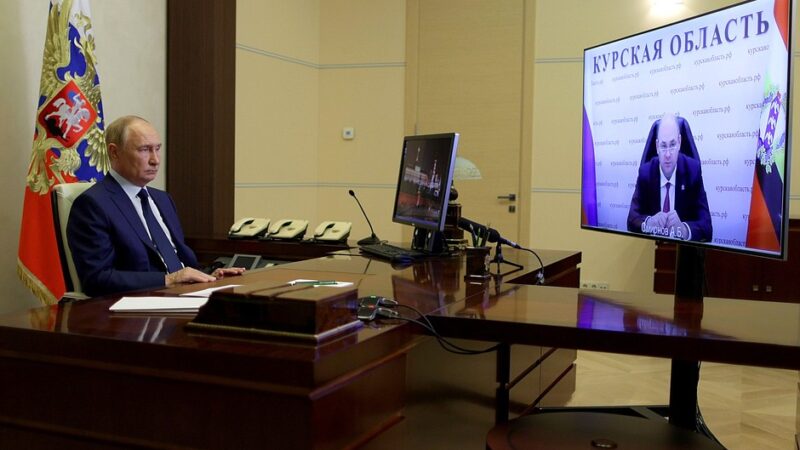
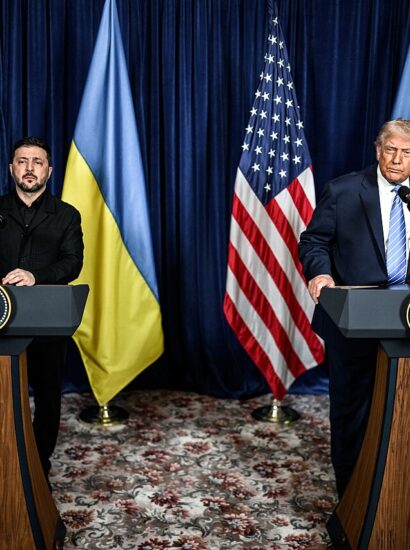
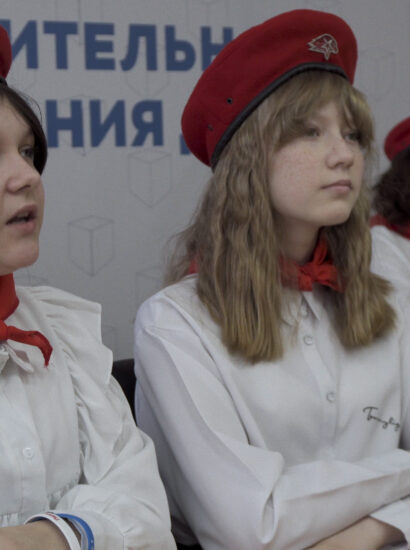
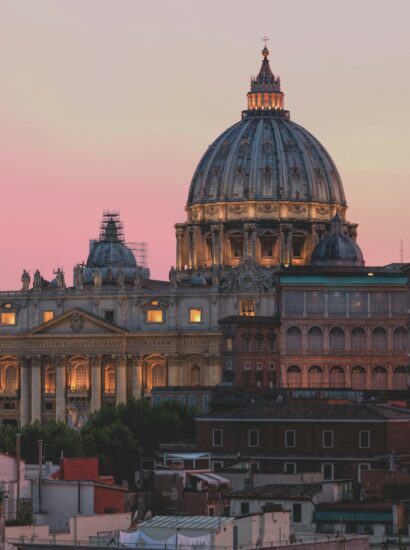
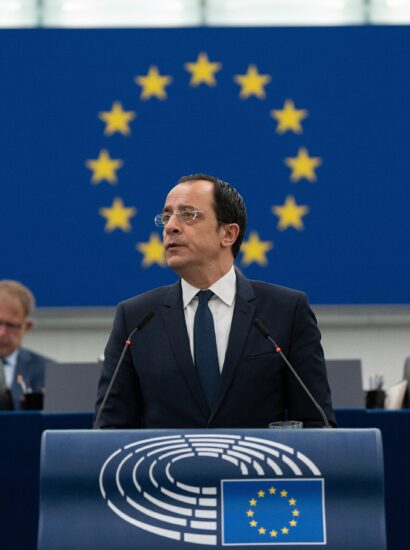


[…] members continuing to produce video investigative reports. In exile, the Khodorkovsky Group and the Free Russia Foundation are still […]